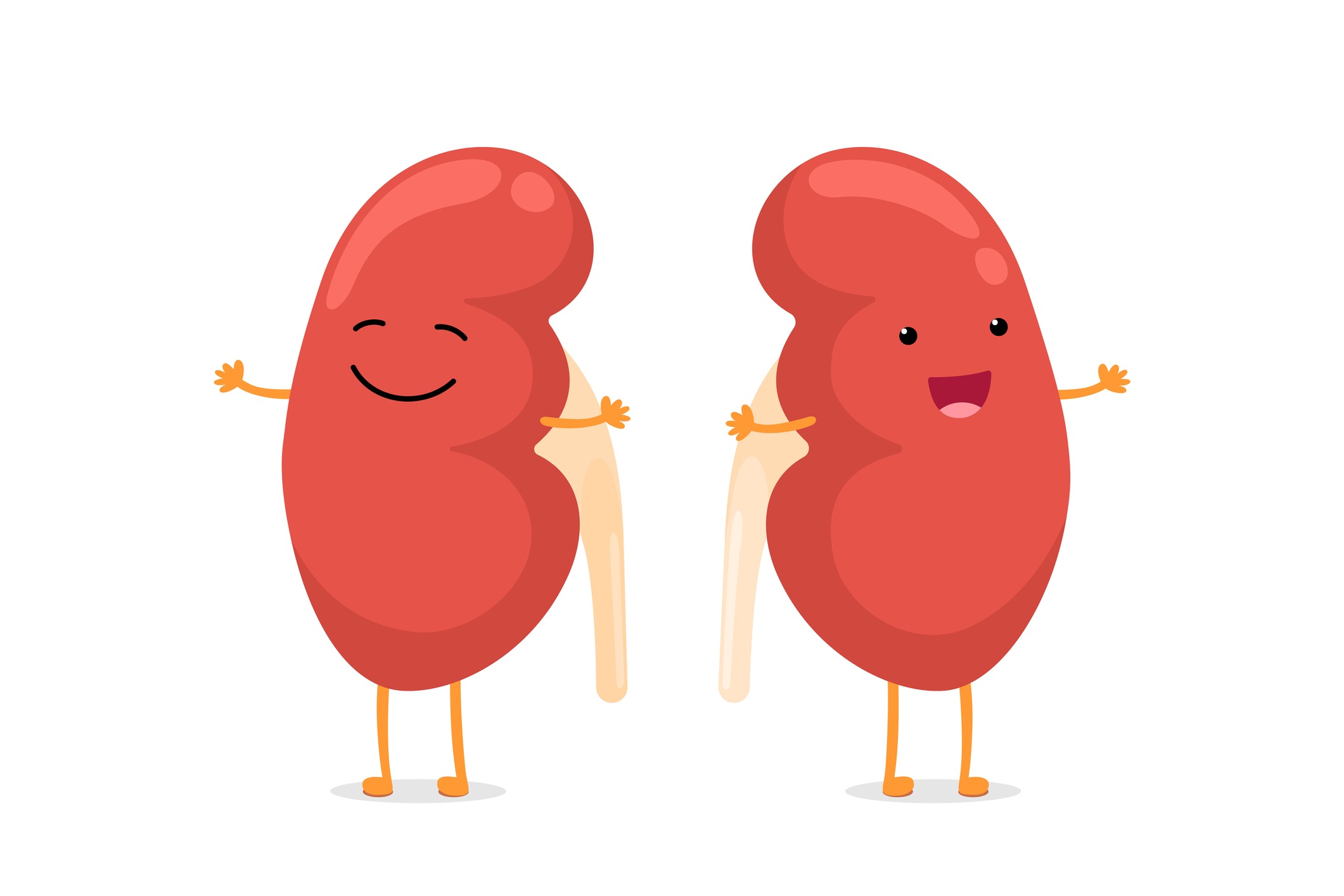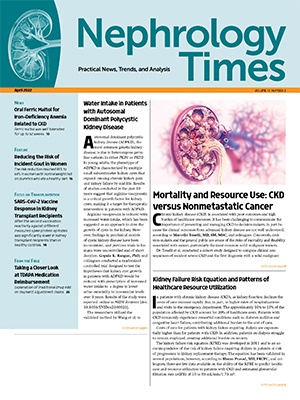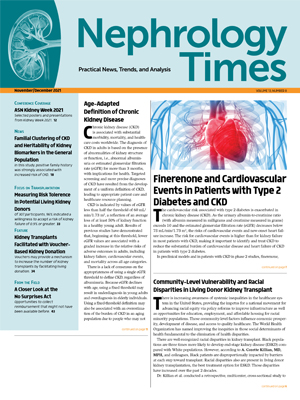
The causes of secondary hyperoxaluria, which can manifest as end-stage renal disease or hypothyroidism, include increased ingestion of oxalate or oxalate precursors, increased oxalate enteric absorption due to fat malabsorption, or changes in intestinal microflora.
During a virtual poster session at ASN Kidney Week 2021, Katherine Julian, MD, and colleagues at Penn State Health Milton S. Hershey Medical Center, Hershey, Pennsylvania, presented a case report of a female, 55 years of age, with a history of hyperparathyroidism and hypothyroidism who was not medication compliant; the patient presented with myxedema coma secondary to uncontrolled hypothyroidism. The poster was titled Excess Vitamin C Leading to Hyperoxaluria and AKI.
The initial workup revealed elevated potassium (7 mmol/L), blood urea nitrogen (194 mg/dL), serum creatinine (35 mg/dL), and thyroid-stimulating-hormone (TSH) (>100 mIU/mL). She was treated with intravenous (IV) levothyroxine, IV liothyronine, insulin, calcium gluconate, and hydrocortisone.
The patient had no known underlying chronic kidney disuse, nephrolithiasis, or nephrocalcinosis; hemodialysis was initiated in the setting of acute kidney injury (AKI). Autoimmune, gastrointestinal, and hepatobiliary AKI etiologies were ruled out. Renal oxalosis was revealed on renal biopsy. Investigation of possible secondary causes of renal oxalosis revealed consumption of large quantities of vitamin C in hopes of preserving her health during the COVID-19 pandemic.
With continuing dependency on hemodialysis, the patient was discharged on levothyroxine 150 mcg sublingual daily, followed by nephrology and endocrinology care. At the time of discharge, TSH remained >100 mIU/mL, but free T4 (thyroxine) was 0.86 ng/dL without any hypothyroid symptoms. Consumption of high doses of vitamin C was discontinued.
The researchers said, “The combination of severe hypothyroidism resulting in myxedema coma and the excessive intake of vitamin C, a precursor for oxalate stones in the kidney, resulted in AKI. However, we believe the severe hypothyroidism was a result of medication noncompliance versus manifestation of systemic oxalosis. We recommend considering secondary oxalosis in cases of dialysis-dependent AKI in the setting of high dose vitamin C consumption or increased exogenous oxalate ingestion and confirming this diagnosis with renal biopsy.”
Source: Julian K, Abendroth C, Zebi AM, Karasinski AA, Jain, Rohit. Excess vitamin C leading to hyperoxaluria and AKI. Abstract of a poster presented at the American Society of Nephrology virtual Kidney Week 2021 (Abstract PO0305), November 2021.





 © 2025 Mashup Media, LLC, a Formedics Property. All Rights Reserved.
© 2025 Mashup Media, LLC, a Formedics Property. All Rights Reserved.